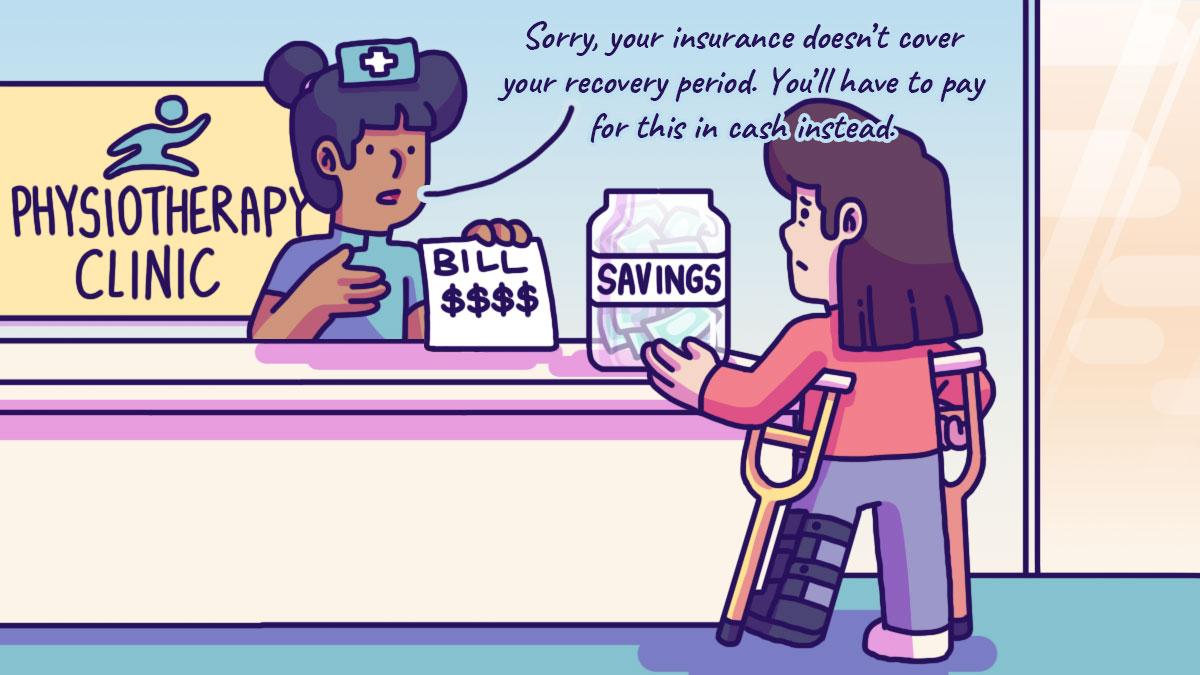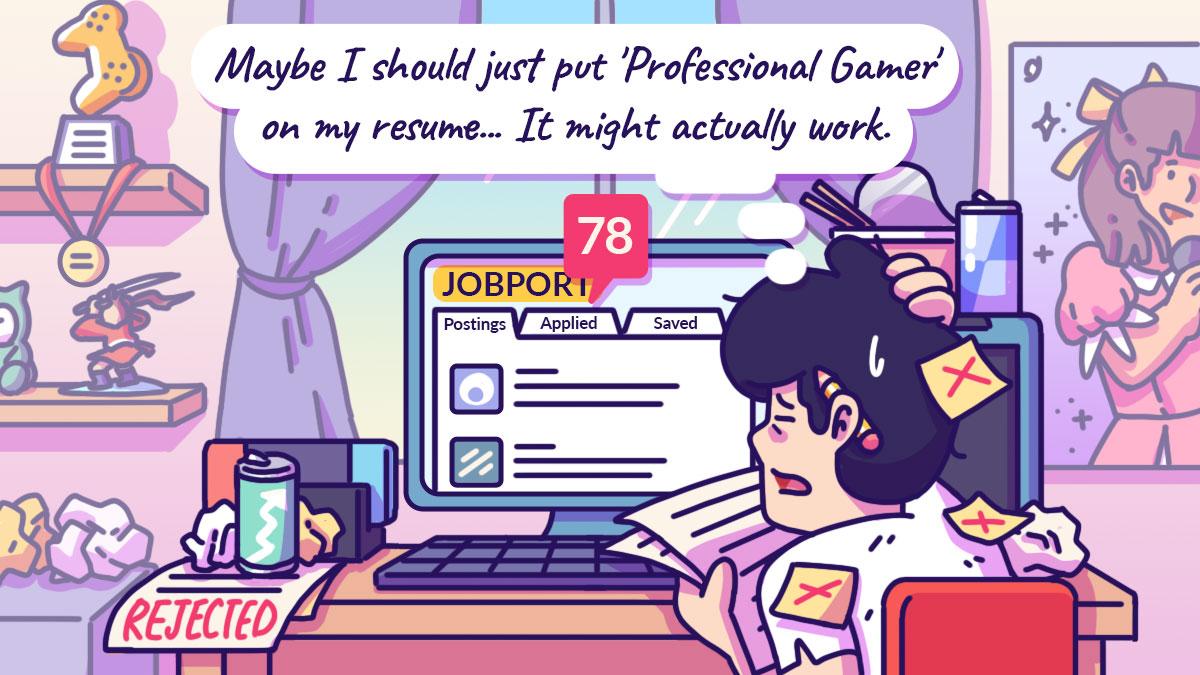Feeling funny in the knee
Her unexpected ordeal began when her knee started giving way while she was on holiday, walking around to see the sights. Dismissing it initially, she soldiered on, thinking it was a pain that would go away. Reality hit when Alyssa, who works in marketing, returned home. Concerned that her knee was still causing her trouble, she consulted a doctor and was diagnosed with a meniscus and anterior cruciate ligament (ACL) tear. Surgery was unavoidable. Still, Alyssa thought that everything was under control as she assumed that her health insurance policy would pay for all the treatment costs related to her getting back on her feet. Little did she know, she had insufficient coverage and would be still left grappling with bills. While Alyssa’s in-patient treatments, hospital stay, and surgery costs were covered under her insurance plan, other expenses like post-surgery outpatient treatments and physiotherapy weren’t. To top it off, after her surgery she developed a skin allergy from her knee brace, which required a visit to the dermatologist, and she had to pay out of pocket for this too. This medical rollercoaster taught Alyssa (and us) a lot of lessons about understanding the importance of understanding the coverage of your insurance and what to bear in mind to avoid being hit with an medical curveballs and resulting bills.
The importance of being protected
If not for Alyssa's insurance policy, the financial ramifications of her medical journey would have been overwhelming. While she knew that her surgery would not be cheap, she was surprised at how quickly the bills piled up. She expressed, “I was extremely relieved!” when she confirmed that her surgery and hospital stay would be covered by her insurer. “I was still a little nervous because I wasn’t sure that the insurance would cover every single thing in the hospital. So I kept double-checking with my insurance agent and with the nurses. Thankfully it did.” When it comes to unexpected situations like these, simply having enough insurance and savings to cover your hospital and surgery bills is insufficient. Other costly incidents, such as stroke, heart attack or road accidents can occur too and that’s why you also need to consider personal accident, critical illness, and for your loved ones, life insurance as part of your financial portfolio. These policies provide a payout when you fall ill or get injured, which can be used to cover non-medical costs or pay for your living expenses if you have to step away from work because of your medical condition.Afford what you can first
While you would want to cover all bases and get the best coverage, sometimes it’s not an amount that you can afford. You may be tempted to just forgo getting any coverage, or get the cheapest options available. While some coverage is better than none, it is important to prioritise and get the right coverage based on your financial needs. Even if the policy isn’t able to cover all expenses, it usually covers more than what your premiums would cost, and would help with any unexpected expenses. Start first with a health insurance policy that aligns with your budget and provides a baseline of security. And when you have more room in your budget, that’s when you can look into increasing the scope and depth of your coverage.Since her injury, Alyssa has added life and critical illness coverage as she is even more aware of the role that insurance can play, going to the extent of making changes in her spending habits to prioritise this expense. “It hurts to see the numbers in my bank account go down so I had to look into other things to cut down on to accommodate these two policies. I ended up reducing my mobile data plan, reducing electricity consumption and cutting down on buying coffee outside.” The Life Insurance Association Singapore recommends having coverage that is at least nine times of your average annual income, and for critical illness, it is approximately four times of your average annual income.Review your policies regularly
As the tides of life change, so do insurance needs. Before her surgery, Alyssa didn’t check her policies at all, something that on hindsight she wished that she did. She just assumed that the plan that her mother had gotten her would be enough. Had she known earlier that her plan didn’t cover outpatient treatments and physiotherapy, she would have explored other options, or had the chance to ensure she was sufficiently protected way before she got injured. Even though her emergency fund could cover those expenses, Alyssa says she was constantly stressed about not having enough to pay for her treatments. Not wanting to experience that anxiety again, Alyssa plans to review her policies more regularly and when financially feasible. “I’m planning to speak with my financial consultant at least once a year, and maybe when I have the budget to increase my coverage further,” she shares. Hence the coverage that might have been adequate when you first bought it, may no longer be sufficient at your present stage. This is why it is important to review your policies, whether on your own or with a financial consultant.Another factor that affects how much coverage you need – your stage of life. Your daily expenses and needs will change from when you are single to when you start a family. It may also change when your parents become older and may have to depend on you for some of their expenses. Similarly, the coverage of the policy you got when you first started work would be insufficient when your first child is born. Hence, it’s essential to reassess your policies regularly to ensure that you and your loved ones remain well protected. Content sponsored by Manulife (Singapore) Pte. Ltd. When you’re young and healthy, it’s easy to believe you are ‘immune’ to life’s uncertainties. Connect with a Manulife Singapore consultant to find out if you have a protection gap, and how you can protect what matters most with Manulife Singapore.











